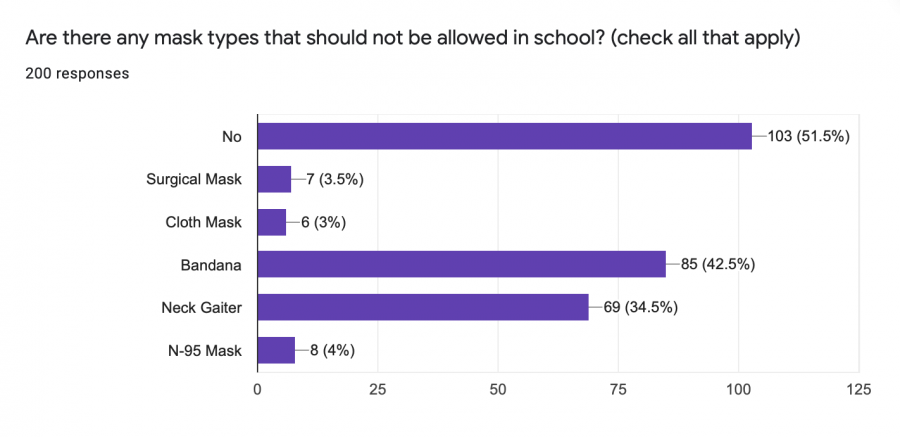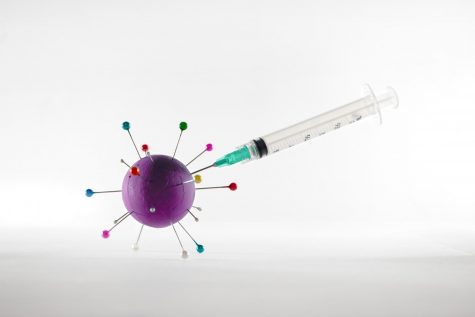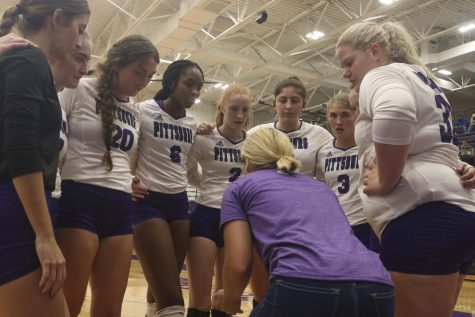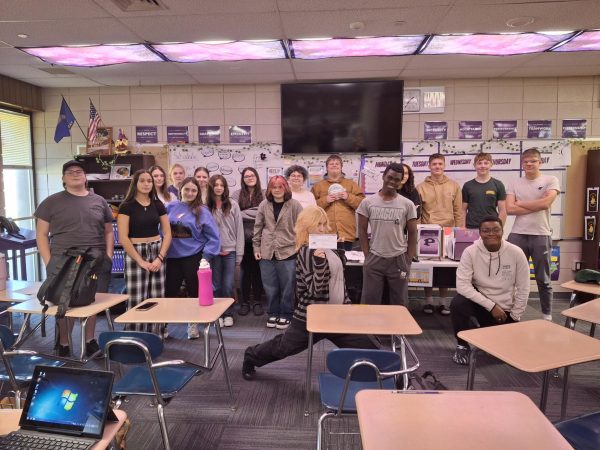Mask misinformation: Neck gaiter becomes center of mixed research
As much of the nation debates about the merits of face coverings, one mask style in particular has come under fire: the neck gaiter. The gaiter is a long tube of fabric which the wearer can slip over their head and neck and pull up over their nose. It is seen as a more comfortable alternative to the traditional face mask.
Despite its comfort and practicality, however, concerns have arisen about the effectiveness of the gaiter following a study published by Duke University.
The study tested 14 different face coverings against a control group (without face coverings) to measure which ones provided adequate suppression of respiratory particles.
Participants were asked to say “stay healthy, people” 10 times with and without the mask. Their respiratory droplets were tracked using a camera and a high-power laser in a dark room.
It found that the gaiter actually allowed for more transmission of particles than even the control group. The gaiter broke up large respiratory particles into smaller ones, resulting in a higher number of small droplets which could prove more contagious.
“We noticed that speaking through… the neck gaiter seemed to disperse the largest droplets into a multitude of smaller droplets,” the study said. “Considering that smaller particles are airborne longer than large droplets (larger droplets sink faster), the use of such a mask might be counterproductive.”
Martin Fischer, the head of the experiment, said “It’s not the case that any mask is better than nothing. There are some masks that actually hurt rather than do good.”
Fischer’s study has made national headlines recently, and has attracted the interest of many organizations who dispute the study’s findings.
Fact-checking organization Snopes delivered a ‘False’ rating to the claim that wearing neck gaiters was worse for COVID-19 transmission than wearing no mask at all.
Furthermore, a recent unpublished report from Virginia Tech researchers had exactly opposite findings to the Duke study.
They found that the gaiter was just as effective as normal cloth face masks against COVID-19, and that the gaiter protected the wearer from 100% of incoming respiratory particles.
It should be noted, however, that this study has yet to be accepted into a scientific journal or to be peer-reviewed, two major stamps of scientific validity. This could also be due to the recency with which the study was conducted.
Fischer later stated that the media wrongly portrayed his study as a definitive condemnation of gaiters, when the experiment was simply meant to develop an easy and cost-effective way to test the efficacy of masks.
As conflicting research comes out regarding the effectiveness of certain masks, one conclusion remains the same: masks work.
Researchers from the University of Washington estimate that over 100,000 lives can be saved by January if 95% of the American population wears masks rather than current usage rates of about 50%.
So, whether it’s a gaiter or any other type of face covering, make sure to continue to wear a mask when around others.
If people have access to a different style of face mask, it may be wise to steer clear of the gaiter until more conclusive evidence comes out regarding its effectiveness. If not, they should make sure to cover their nose and keep at least six feet of distance between themselves and others.
As MIT Medical said: “Other mask options are probably better than a single-layer neck gaiter in many situations, but a gaiter… is almost certainly better than nothing.”

34.5% of respondents said that neck gaiters should not be allowed in school, while 51.5% of respondents said that mask types should not be restricted in school. Note that percentages do not add up to 100%, as respondents were allowed to choose more than one selection.
Your donation will support the student journalists of Pittsburg High School - KS. Your contribution will allow us to purchase equipment and cover our annual website hosting costs.

This is Jacob's second year on the newspaper staff at PHS. He is also involved in debate, scholars bowl, forensics, math club, key club, FCA,...











